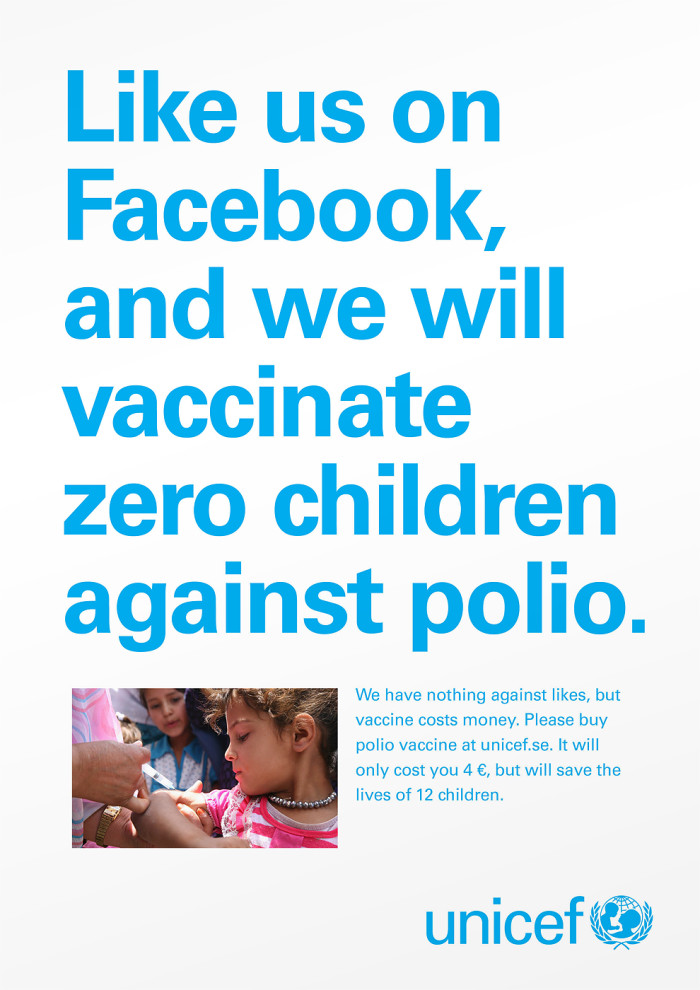UNICEF: Facebook Likes Don’t Save Children
 Your Facebook news feed is probably overflowing with sentimental images encouraging other users to “like” a page or share an image in order to combat some disease, or save an abandoned animal, or take part in some political movement. But in the end, those likes don’t do a dang thing, and the folks at UNICEF want everyone to know this.
Your Facebook news feed is probably overflowing with sentimental images encouraging other users to “like” a page or share an image in order to combat some disease, or save an abandoned animal, or take part in some political movement. But in the end, those likes don’t do a dang thing, and the folks at UNICEF want everyone to know this.
Tired of seeing people who assume they’ve done their part to combat childhood hunger, disease and famine by simply passing along images of strife and poverty to Facebook friends, the folks at UNICEF Sweden have created an ad campaign that blatantly call out such slacktivism.
“Like us on Facebook and we will vaccinate zero children against polio,” reads one poster, which goes on to explain that Facebook likes are all well and good, but they don’t pay for the vaccines that will actually save the lives of kids.
“We like likes, and social media could be a good first step to get involved, but it cannot stop there,” the UNICEF Sweden Director of Communications tells The Atlantic. “Likes don’t save children’s lives. We need money to buy vaccines for instance.”
The following video is even more to the point about the uselessness of Facebook likes:
Whether it’s intentional or simply ironic, the UNICEF message is quickly spreading around Facebook and other social networks, where people are clicking “like” and then probably not giving much thought to the other things they share online.
This is just the latest backlash against well-intentioned, but not terribly well thought out, feel-gooder movements pushed into the spotlight by Facebook and other social media. Remember the whole “suspended coffee” thing, in which people would pay for a coffee for some anonymous cash-strapped person in the future? Turns out that it’s a pain in the butt to the shops, and honestly there are better, more nutritious things to give to the homeless and hungry than a cup of coffee.
Want more consumer news? Visit our parent organization, Consumer Reports, for the latest on scams, recalls, and other consumer issues.

